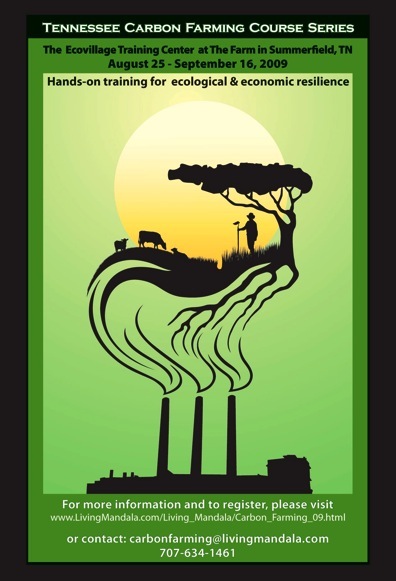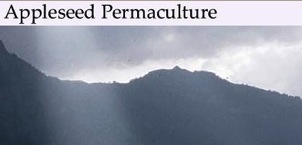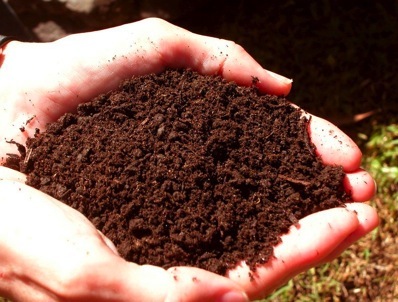Courses, Workshops & Events









Home | About Us | Contact Us | Store

2008, Living Mandala
creative services by: 360 Degrees
Including
SOIL FOOD WEB
PATHWAYS TO RELOCALIZATION
In Association With
Carbon Farming Series
Soil Food Web Inc.
Polyface, Inc
Eco-Village Training Center
Appleseed Permaculture
Australia Felix Permaculture
Facilitators & Instructors
Dr. Elaine Ingham
Joel Salatin
Context
The Tennessee Carbon Farming Course will be the first in a national campaign to spread this cutting edge curriculum throughout the United States. The Ecovillage Training Center at the Farm offers an amazing opportunity to experience permaculture in action; the Farm's 1,700 acres will undergo a massive keyline design and implementation during and after the course to help drought proof the community and prepare for future growing.
Course Description - The Soil Food Web
There is a whole world under the soil Ôø‡ and no one knows this cast of characters better than Elaine Ingham! Elaine is one of the world's leading soil microbiologists, with 30 years of experience researching and teaching and an easy and enthusiastic style that brings the soil food web to life. Elaine literally wrote the book on compost teas: The Compost Tea Brewing Manual.
Healthy soil has all the interconnected elements of a Ôø‡webÔø‡ Ôø‡ which can retain nutrients, cycle nutrients into the right forms at the right rates for the plant desired, build soil structure, suppress disease-causing organisms, protect plant surfaces, produce plant-growth-promoting hormones and chemicals, and decompose toxic compounds. In this course, you'll look at the elements of a healthy soil food web, learn how to analyze and improve your own soil, and learn how to make composts and extracts to strengthen the soil food web.
The course will cover the soil food web, soil food web analysis, composts and compost extracts, and the use of microscopes.
Special Guest Instructor - Joel Salatin
In this course, you'll meet Joel Salatin, one of the world's leading experts and advocates of agrarian relocalization Ôø‡ and a featured farmer in Michael Pollan's Omnivore's Dilemma. Joel is known as a passionate and outspoken voice supporting farmers and sustainable agriculture. Joel's Ôø‡grass farmingÔø‡ techniques are the foundation for his successful Polyface farm Ôø‡ one of the most productive and influential alternative farms in America. His latest book is called Everything I Ever Wanted to Do is Illegal.
Joel's speaking and writing reflect dirt-under-the-fingernails experience punctuated with mischievous humor. He will challenge you to design the pathways to relocalization based on his own very successful model at Polyface Farm in Swoope, Virginia. You will also learn techniques and directions from the emerging Ôø‡Transition TownsÔø‡ movement.
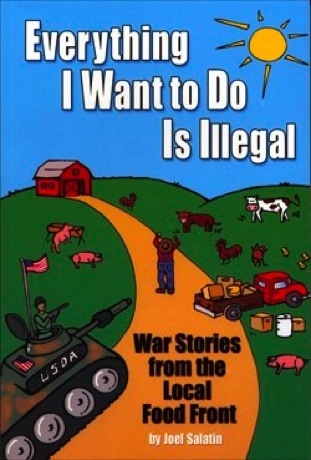
What is Relocalization?
Developed in response to the environmental social, political and economic impacts of our over-reliance on cheap energy, relocalization is a strategy to move communities to local food, energy and goods production with local currency, governance and culture. The goal of relocalization is to increase community energy security, strengthen local economies, and dramatically improve environmental conditions and social equity.
Purpose
Studies have shown that permaculture-inspired soil building techniques lead to significant carbon sequestration, while also increasing soil fertility and water retention. This course will provide participants with an opportunity to learn these techniques in order to create resilient, drought proof, soil-rich, carbon-negative agricultural systems that produce organic food as well as additional income through the international carbon market.
Format
This course is one part of a series of four modules constituting the nation's first holistic curriculum for carbon negative agriculture. Participants can choose to attend the entire course or individual modules and/or combined selections based on their specific interests.
Modules
Module 1 - 8/25-30: Holistic ManagementÔø‡ with Kirk Gadzia
Module 2 - 9/1-6: Keyline Design Course with Darren Doherty
Module 3 - Sep 8-11: Regenerative Earthworks & Food Forestry with Brad Lancaster & Eric Toensmeier
Module 4 - Sep 13-16: Soil Food Web & Pathways to Relocalisation with Dr. Elaine Ingham & Joel Salatin
Combined Selections
Holistic Keyline Management: Modules 1-2 - Aug 25-Sep 6
Broadacre Permaculture Design: Modules 2-3 - Sept 1-11
Regenerative Local Agriculture: odules 3-4: Sept 8-16
Holistic Carbon Farming for Soil Health and Increased Profits - All Modules: Aug 25-Sept 16
Site Details
Located on The Farm at the eastern edge of Lewis County Tennessee, ETC is a training center in sustainable living. It holds courses and workshops, apprenticeships and special demonstrations in green lifestyles. The facility is located in a permaculture setting with protected woods and meadows, an eco-hostel, organic garden, swales, ponds and learning center. It hosts courses in permaculture, organic certifications, herbology, installation of solar electric systems, solar waterheating, mushroom cultivation, cob, earthbag and strawbale construction biofuels and a host of courses designed by Gaia University. The ETC has trained students from over 50 countries and is pleased to be working locally with the Hohenwald Financial Permaculture project.
Contact
For questions, more information, and to register,
e-mail: carbonfarming@livingmandala.com or
call: 707-634-1461
Carbon Farming on Twitter
Soil Food Web & Pathways to Relocalization
Broadacre Permaculture & Holistic Management for Carbon Negative Agriculture
Exploring Soil, Water, Carbon, Energy & the Economy through a 6-part holistic curriculum
September 13 - 16, 2009
Dr. Elaine Ingham & Joel Salatin
Ecovillage Training Center at the Farm in Summertown, TN
What is the Soil Food Web?
An incredible diversity of organisms make up the soil food web. They range in size from the tiniest one-celled bacteria, algae, fungi, and protozoa, to the more complex nematodes and micro-arthropods, to the visible earthworms, insects, small vertebrates, and plants.
As these organisms eat, grow, and move through the soil, they make it possible to have clean water, clean air, healthy plants, and moderated water flow.
There are many ways that the soil food web is an integral part of landscape processes. Soil organisms decompose organic compounds, including manure, plant residue, and pesticides, preventing them from entering water and becoming pollutants. They sequester nitrogen and other nutrients that might otherwise enter groundwater, and they fix nitrogen from the atmosphere, making it available to plants. Many organisms enhance soil aggregation and porosity, thus increasing infiltration and reducing runoff. Soil organisms prey on crop pests and are food for above-ground animals.
Text taken from the NRCS - U.S. Department of Agriculture Natural Resources Cnservation Services by Dr. Elaine R. Ingham
The Soil Food Web - Organisms and their Interaction
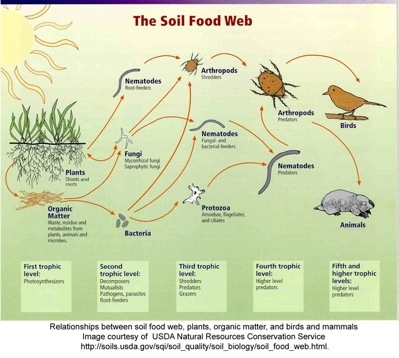
The illustration above describes the complex living system in the soil and how it interacts with the environment, plants, and animals. The soil food web is the community of organisms living all or part of their lives in the soil. A food web diagram shows a series of conversions (represented by arrows) of energy and nutrients as one organism eats another (see food web diagram).
All food webs are fueled by the primary producers: the plants, lichens, moss, photosynthetic bacteria, and algae that use the sun's energy to fix carbon dioxide from the atmosphere. Most other soil organisms get energy and carbon by consuming the organic compounds found in plants, other organisms, and waste by-products. A few bacteria, called chemoautotrophs, get energy from nitrogen, sulfur, or iron compounds rather than carbon compounds or the sun. All plants Ôø‡ grass, trees, shrubs, agricultural crops Ôø‡ depend on the food web for their nutrition.
The Importance of the Soil Food Web
The living component of soil, the food web, is complex and has different compositions in different ecosystems. Management of croplands, rangelands, forestlands, and gardens benefits from and affects the food web. The next unit of the Soil Biology Primer, Ôø‡The Food Web & Soil Health,Ôø‡ introduces the relationship of soil biology to agricultural productivity, biodiversity, carbon sequestration and to air and water quality. The remaining six units of the Soil Biology Primer describe the major groups of soil organisms: bacteria, fungi, protozoa, nematodes, arthropods, and earthworms. For more information about the diversity within each organism group, see the list of readings at the end of Ôø‡The Food Web & Soil HealthÔø‡ unit.
Why Grow an Edible Forest Garden?
While each forest gardener will have unique design goals, forest gardening in general has three primary practical intentions:
* High yields of diverse products such as food, fuel, fiber, fodder, fertilizer, 'farmaceuticals' and fun;
* A largely self-maintaining garden and;
* A healthy ecosystem.
These three goals are mutually reinforcing. For example, diverse crops make it easier to design a healthy, self-maintaining ecosystem, and a healthy garden ecosystem should have reduced maintenance requirements. However, forest gardening also has higher aims.
As Masanobu Fukuoka once said, "The ultimate goal of farming is not the growing of crops, but the cultivation and perfection of human beings." How we garden reflects our worldview. The ultimate goal of forest gardening is not only the growing of crops, but the cultivation and perfection of new ways of seeing, of thinking, and of acting in the world. Forest gardening gives us a visceral experience of ecology in action, teaching us how the planet works and changing our self-perceptions. Forest gardening helps us take our rightful place as part of nature doing nature's work, rather than as separate entities intervening in and dominating the natural world.
Tuition & Lodging
This cost of this module is $1400.
Pricing is $3500 maximum for the entire intensive, August 25 - September 16. Tuition includes over three weeks of instruction, lodging, and 3 delicious meals per day. Participants can register for the entire intensive, individual, or combines sessions. Tuition break-down for individual and combines modules is below. Come for the whole course or pick individual modules & combos.
Module Pricing
Module 1: Aug 25-30 - (6 days) - $1,150
Module 2: Sep 1-6 - (6 days) - $1,150
Keyline Design Course with Darren Doherty
Module 3: Sep 8-11 - (4 days) - $800
Regenerative Earthworks & Food Forestry
with Brad Lancaster & Eric Toensmeier
Module 4: Sep 13-16 - (4 days) - $1,400
Soil Food Web & Pathways to Relocalisation
with Dr. Elaine Ingham & Joel Salatin
Combined Selections
All Modules: Ôø‡Holistic Carbon Farming for Soil Health and
Increased Profits" - Aug 25-Sept 16 - $3,500
Modules 1 & 2: "Holistic Keyline Management" - $2,000
Holistic Managment + Keyline Design Course - Aug 25-Sep 6
Modules 2 & 3: "Broadacre Permaculture" - $1,700
Keyline Design Course + Regenerative Earthworks & Food
Forestry - Sept 1-11
Modules 3 & 4: - "Regenerative Local Agriculture" - $2,000
Regenerative Earthworks & Food Forestry +
Soil Food Web & Relocalization - Sept 8-16
Scholarships
Limited scholarships from 25-75% off tuition are now available! To apply e-mail you bio or resume and a short letter why you want a scholarship to: carbonfarming@livingmandala.com
Confirmation
Once we receive your registration information and payment you will receive a confirmation e-mail confirming your registration into the course. We will then send you additional information regarding course details.
Refund Policy
Cancellations are fully refundable up to two weeks before the course begins on August 11 excluding a $50 processing fee. After August 11 deposits are not refundable and no refunds will be given.
Carbon Farming Blog
Get more information, read postings from instructors, and stay up to date at the Carbon Farming Blog.


Facilitators & Instructors
Dr. Elaine Ingham
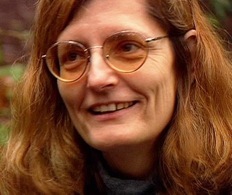
Dr. Ingham is President and Director of Research at Soil Foodweb Inc., a small business that grew out of her Oregon State University research program. Her research is on: What organisms are present in the soil and on the foliage of your plants, which organisms benefit which types of plants, which organisms harm plants, how can these organisms be managed to grow plants with the least expensive inputs into the system while maintaining soil fertility. Elaine started her academic career at St. Olaf College in Northfield, MN graduating in 1974 with a double major, cum laude, in Biology and Chemistry. Elaine earned her Master of Science in Microbiology in 1977 at Texas A & M University and her doctorate degree from Colorado State University in 1981. Elaine's doctorate is in Microbiology with an emphasis on soil. Elaine was offered Post-doctoral Fellowship, along with her husband Russ (who also has a doctorate from Colorado State University in Zoology, emphasizing nematology), at the Natural Resource Ecology Lab at Colorado State University. In 1985, Elaine accepted a Research Associate Fellowship at the University of Georgia.
Dr. Elaine Ingham is an energetic, easy-to-understand speaker who explains what life in the soil is all about. Behind this "user-friendly" approach lies a wealth of knowledge gained from years of intensive research into the organisms which make up the soil food web. Elaine not only understands the soil food web, she has knowledge on how to ensure a healthy food web to promote plant growth and reduce reliance on inorganic chemicals. While truly an academic, Elaine is also passionate about sharing her knowledge and research findings with those at the grass roots level of working with soils. That includes not just farmers who grow crops, but also those who graze cattle, sheep and other livestock, fruit and vegetable growers, greens keepers, parks and gardens workers, nursery operators - in fact anyone who grows things, even if it's just plain old lawn grass. Elaine offers a way forward for sustainable farming. A way of improving the soils we work with now and a way to keep soils in this healthier state without damaging any other eco-system. Attendance at Elaine's courses is always very high with a broad cross section of people taking advantage of her knowledge sharing. It is exciting that a speaker with such a depth of knowledge and dynamic presentation style, who is respected the world over as a leader in research of the soil food web is sharing this information with us.
Joel Salatin
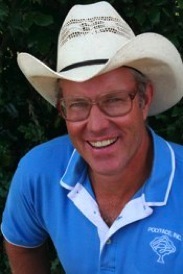
alternative farmer, he returned to the farm fulltime in 1982 and continued refining and adding to his parentsÔø‡ ideas. The farm services more than 1,500 families, 10 retail outlets, and 30 restaurants through on-farm sales and metropolitan buying clubs with salad bar beef, pastured poultry, eggmobile eggs, pigaerator pork, forage-based rabbits, pastured turkey and forestry products using relationship marketing. He holds a BA degree in English and writes extensively in
magazines such as STOCKMAN GRASS FARMER, ACRES USA, and AMERICAN AGRICULTURALIST. The family's farm, Polyface Inc. (Ôø‡The Farm of Many FacesÔø‡) has been featured in SMITHSONIAN MAGAZINE, NATIONAL GEOGRAPHIC, GOURMET and countless other radio, television and print media. Profiled on the Lives of the 21st Century series with Peter Jennings on ABC World News, his after- broadcast chat room fielded more hits than any other segment to date. It achieved iconic status as the grass farm featured in the NEW YORK TIMES bestseller OMNIVORE's DILEMMA by food writer guru Michael Pollan.
A sought-after conference speaker, he addresses a wide range of issues, from Ôø‡creating
the farm your children will wantÔø‡ to Ôø‡making a white collar salary from a pleasant life in the
country.Ôø‡ A wordsmith, he describes his occupation as Ôø‡mob-stocking herbivorous solar
conversion lignified carbon sequestration fertilization.Ôø‡ His humorous and conviction-based speeches are akin to theatrical performances, often receiving standing ovations. Joes has authored six books, four of them how-to types:
Ôø‡ PASTURED POULTRY PROFITS: Net $25,000 in 6 months on 20 Acres, SALAD BAR BEEF.
Ôø‡ SALAD BAR BEEF, YOU CAN FARM: The Entrepreneur's Guide to Start and Succeed in a Farming Enterprise.
Ôø‡ FAMILY FRIENDLY FARMING: A Multi-Generational Home-Based Business Testament.
Ôø‡ HOLY COWS AND HOG HEAVEN: The Food Buyer's Guide to Farm Friendly Food,
is an attempt to bring producers and patrons together in mutual understanding and appreciation.
Ôø‡ EVERYTHING I WANT TO DO IS ILLEGAL: War stories from the local food front.
Ôø‡ YOU CAN FARM: The Entrepreneur's Guide to Start and Succeed in a Farming Business.
His speaking and writing reflect dirt-under-the-fingernails experience punctuated with mischievous humor. He passionately defends small farms, local food systems, and the right to opt out of the conventional food paradigm. His mother Lucille, wife Teresa, daughter Rachel, son Daniel, daughter-in-law Sheri, grandsons Travis and Andrew, and granddaughter Lauryn, work fulltime together on the family farm.
Affiliated Organizations


